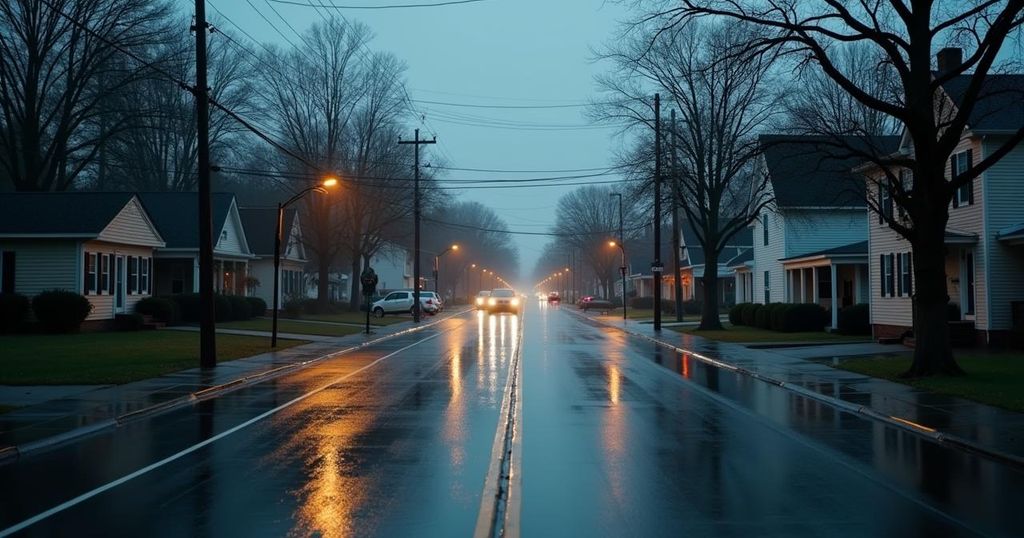Communication Struggles Amid Flooding in North Carolina Following Hurricane Helene

Hurricane Helene has left western North Carolina in devastation, complicating communication, leading to fatalities, and blocking roads. The aftermath continues to reveal challenges for residents and emergency responders as they navigate the impacts of the storm and ongoing flood risks.
On a clear and cool Sunday in the mountains of North Carolina, devastation left in the wake of Hurricane Helene became alarmingly visible. This storm, having made landfall in Florida as a Category 4 hurricane, resulted in catastrophic flooding across several states, including North Carolina. The towns in the western region are still grappling with the aftermath of the storm, characterized by a significant struggle to communicate due to sporadic cell and internet service. Residents have resorted to social media to locate missing friends and relatives while enduring long waits at gas stations to refuel or acquire necessities. In Buncombe County, which encompasses Asheville, over 1,000 reports have been filed by individuals seeking their loved ones. Local officials anticipate this number will decline once communication services are restored. Unfortunately, the storm’s toll has already been devastating; at least 61 fatalities have been reported across several states, with South Carolina suffering the highest number of deaths at 22. North Carolina alone has reported 10 casualties. The extent of devastation is further underscored by reports from local officials. Fire Chief Anthony Penland stated that Swannanoa has been “completely devastated,” with some neighborhoods entirely erased. Emergency response efforts are hampered by blocked roads, as over 400 thoroughfares remain closed, impacting vital interstate travel routes. Search-and-rescue teams face significant obstacles in accessing affected areas. Flood alerts continued to be issued days after the rain ceased, with substantial flooding still a major concern. Although additional rainfall from the remnants of Helene is expected to be minimal, saturated soils could lead to excessive runoff and further flooding complications. The overwhelming force of the storm has altered life in these communities irrevocably. Residents are witnessing their neighborhoods transformed entirely, with signs of devastation evident throughout the region. Individual sentiments of loss and uncertainty reverberate through the community as people reflect on what has been irrevocably changed.
Hurricane Helene made landfall in the Gulf Coast of Florida before causing significant flooding across several U.S. states. North Carolina has been severely impacted, particularly in the western areas where communication has become increasingly challenging due to outages. The floodwaters and resulting road closures have led to increased difficulties for search-and-rescue operations, as well as creating a sense of uncertainty about the well-being of residents and the state of local businesses.
The aftermath of Hurricane Helene has left a profound impact on the communities in western North Carolina, characterized by significant loss of life and property coupled with struggles for communication and access to resources. The situation continues to evolve as residents face the dual challenges of rebuilding their lives and ensuring the safety of their loved ones amidst ongoing flood risks. The concerns for the economic revival and the restoration of community spirit persist, as many local businesses may face an uncertain future due to the extensive damage.
Original Source: www.washingtonpost.com








